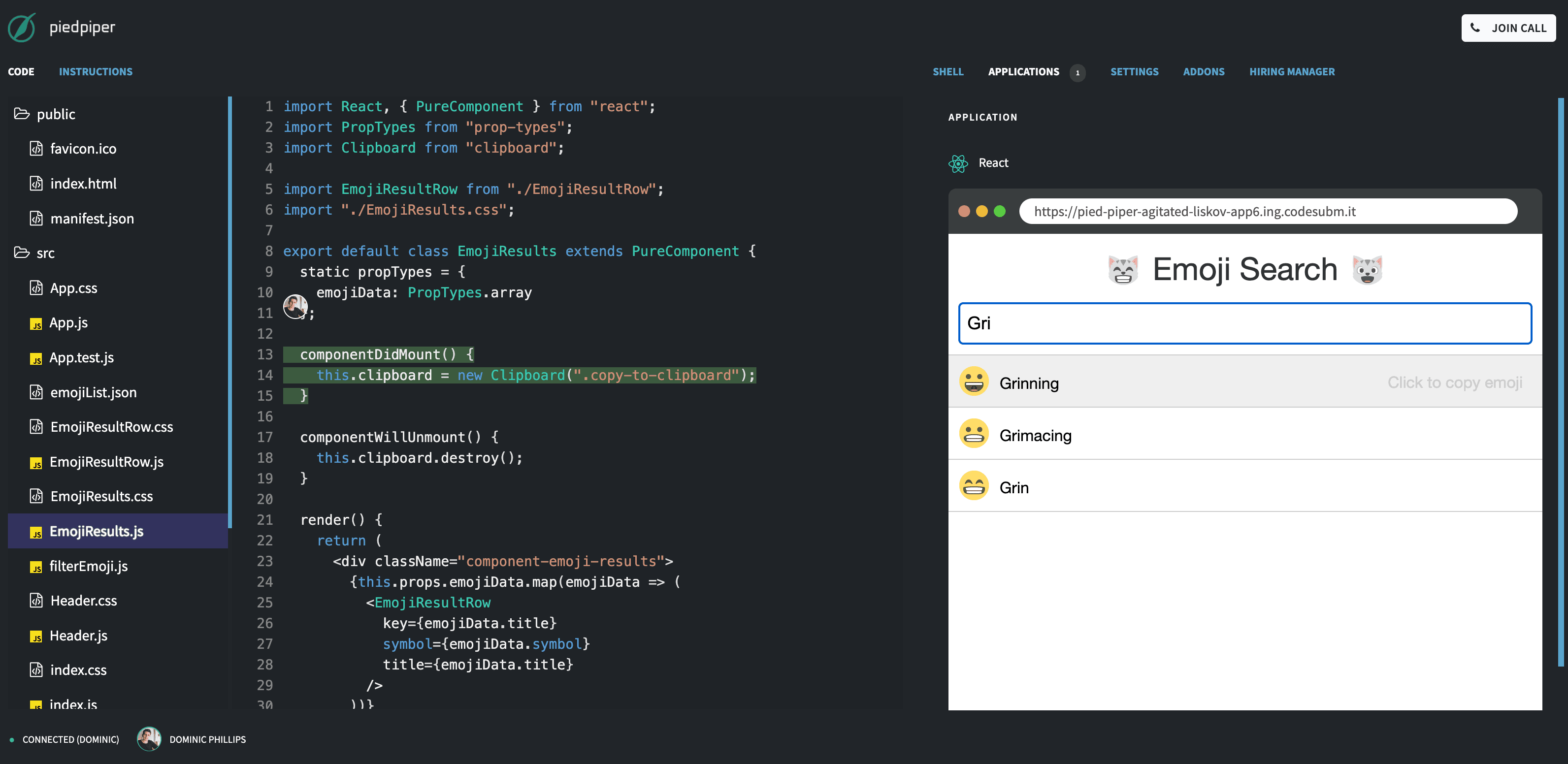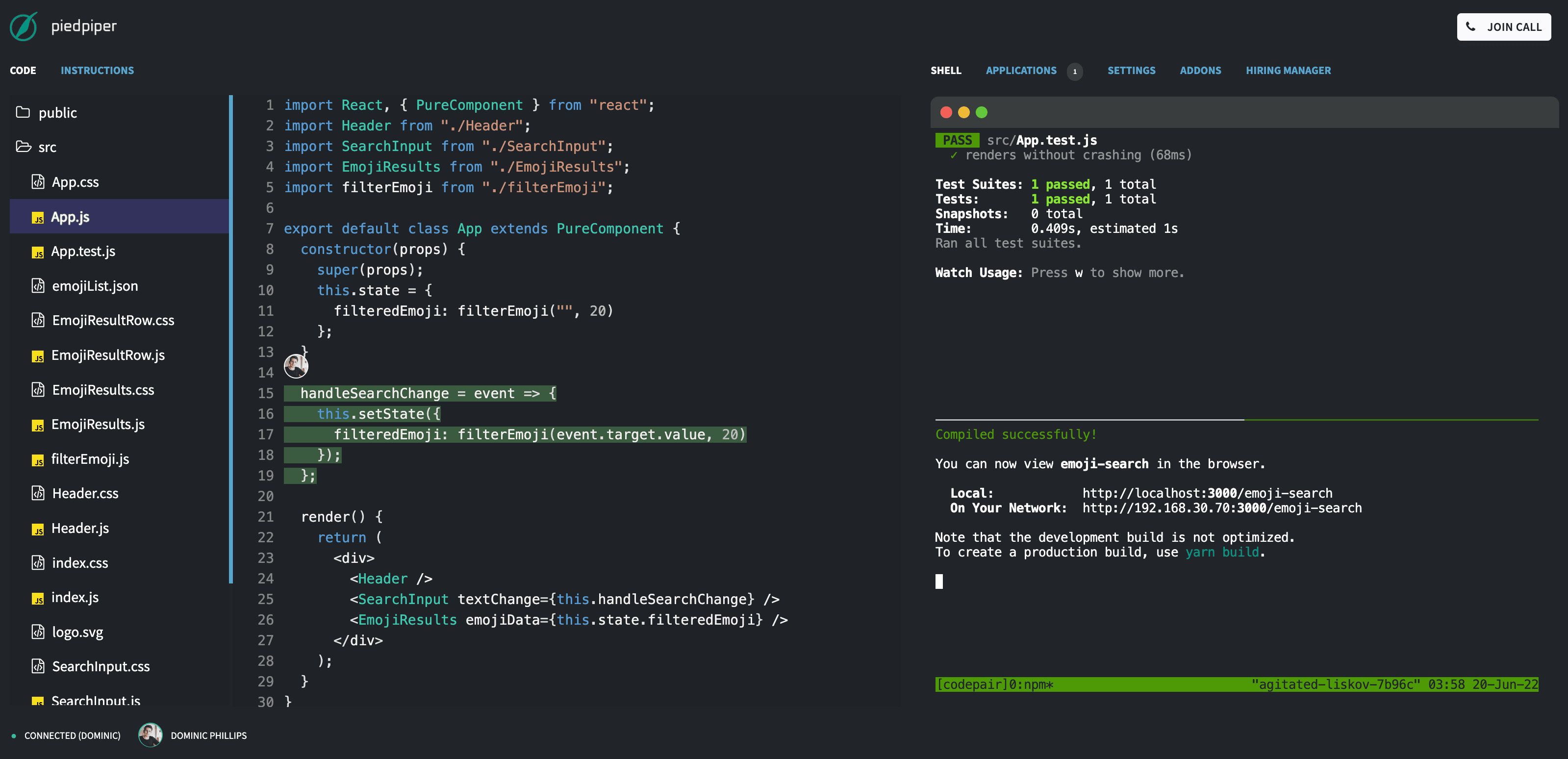
Tracy Phillips
CodeSubmit Team
CodePair Follow-Up Interviews & Multi-File Sessions
In the 3+ years we’ve been building CodeSubmit, the number one feature request is often based on the same scenario:
Thoughtful hiring teams know that candidates are investing hours of their time into take-home challenges. They want to reuse the product of all that effort in a follow-up interview, where they can review and even expand upon the candidate’s work, together.
But reviewing a candidate’s submission with them in real-time can be challenging, especially if you’re trying to do so remotely.
Sure, Zoom allows a hiring manager to share their screen. And perhaps they and the candidate can both access the submission separately-but-simultaneously, assuming the candidate has a copy of their work.
But how can they add and expand upon the submission? What if a hiring manager wants to allow the candidate to make changes to their code, work through the next iteration of their solution, or test edge cases? The whole experience is clunky.
So a lot of you asked for a way to do it in CodeSubmit, and we’re excited to announce how we’re delivering on making that possible.

Follow-Up Interviews
CodePair now supports what we’re calling Follow-Up Interviews.
Follow-Up Interviews allow you to import your candidate’s take-home solution into a CodePair instance and work on it collaboratively. Yes - We’re talking multi-file support in a real-time collaborative coding environment.
When you launch a Follow-Up Interview, you’ll get a lot of the same features you see in a normal CodePair interview: the collaborative Monaco code editor, the ability to take notes, built-in autocomplete, add-on support, and access to the shell. You can still use our built-in audio and video features as well. But now, your candidate’s submission is uploaded and ready to go, without any extra setup on your part.
We’re excited to see how our customers leverage the Follow-Up Interview in their hiring process. On our end, we believe that doing so will make the candidate experience even better.
Not only can you dig into the candidate's solution during your next interview, revealing more about the candidate, their problem-solving approach, and how they review their own work. You in turn give that candidate a strong signal that you value their time and effort, and that your hiring team takes both of those seriously when vetting talent.
These signals matter more than ever when it comes to winning over top talent for your open roles.
So, that was the impetus for multi-file support within CodePair. But if we're going to do it for Follow-Up interviews, it makes sense to provide that level of flexibility across all CodePair sessions!

Multi-File CodePair Sessions
The next time you create a new template in CodePair, you'll have the option to choose between the traditional single-file session or a super flexible multi-file session.
It all depends on your hiring team's use-case, but multi-file CodePair interviews are epic in their own right. The limit to what you can achieve in a technical interview is your imagination, but here are a few ideas to get started:
- A full-stack web application with a frontend (webpack, npm), service/API layer, and database. Run them all simultaneously in-browser and see your candidate's changes happen in real-time.
- A backend server application that involves running a project with Ruby on Rails, Django, Node + Express, Go, or any other backend language/framework combo.
- Run data science and engineering projects that leverage your team's unique dependencies or tools alongside downloaded or newly created data, especially in languages like Python or R.
- Create custom content that evaluates a DevOps candidate’s ability to interact with a live Linux system.
- And for all technical candidates, evaluate everyday engineering skills like shell scripting and working with a source control tool. Plus the added benefits of a standard pair-programming interview, like understanding how they approach problems and hearing how they speak about their implementation.
We believe as strongly today as we did on Day 1 that the best technical interview is the one that gets your candidate as close to real work as possible, while still maintaining a great candidate experience. And we're excited to continue to help our awesome customers do that everyday, with CodeSubmit's CodePair.
If you're not a customer yet, give us a try with our free, no-risk 7-day trial. No credit card required.